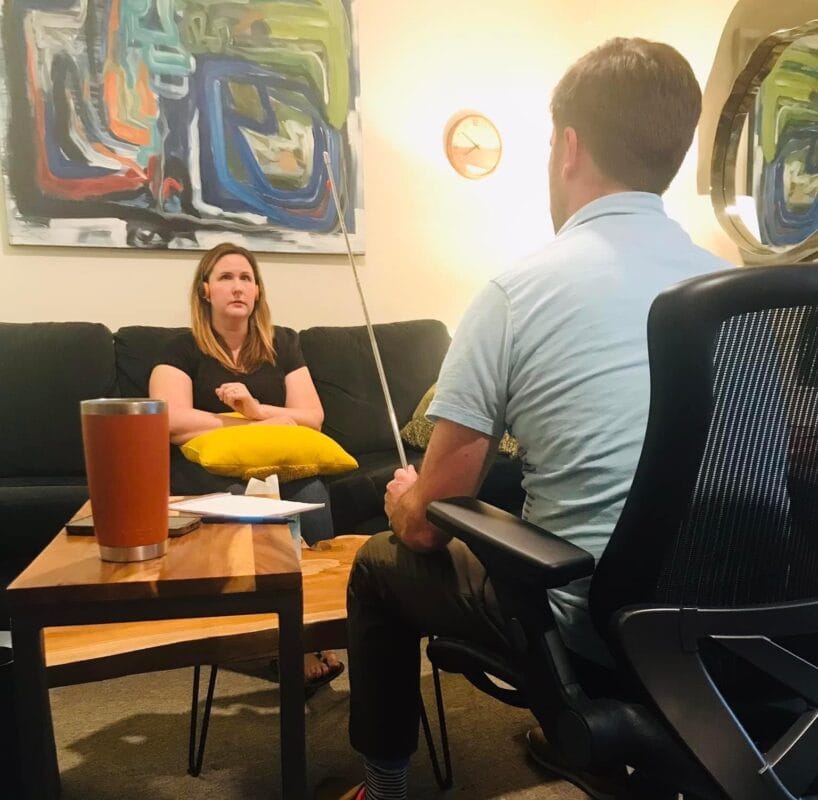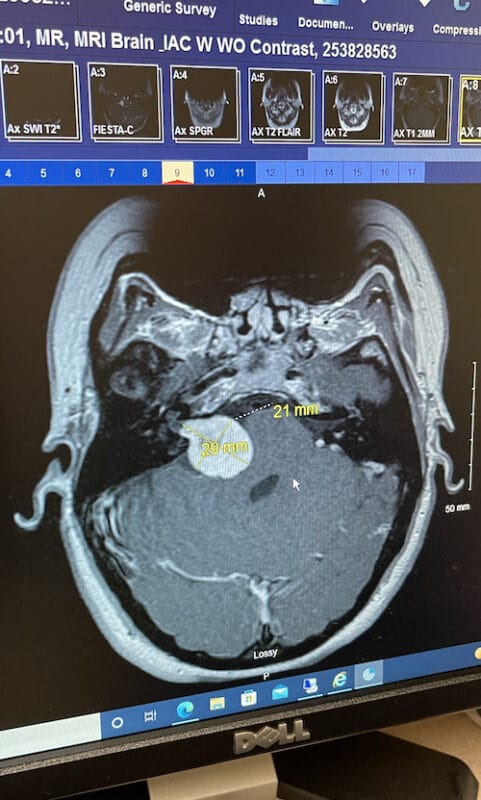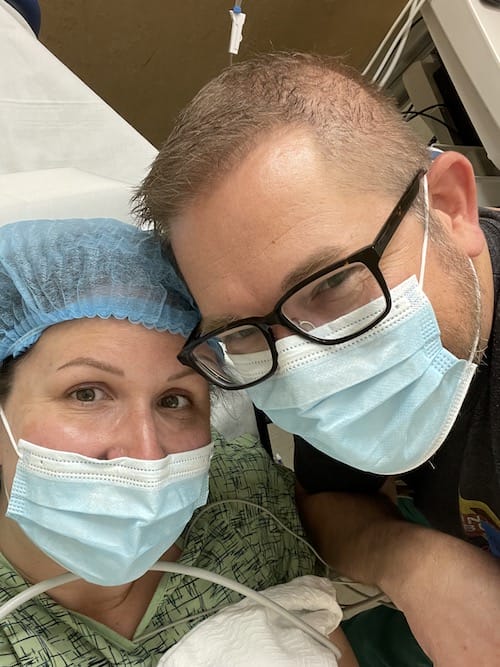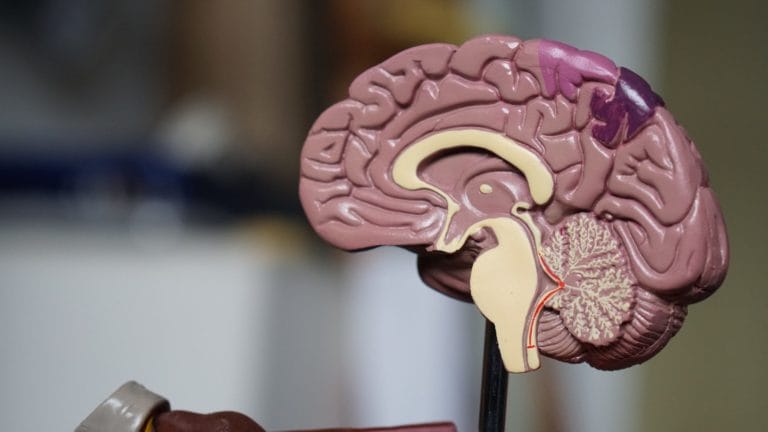Understanding Anxiety
Hello. My name is Rachel, and I’m the clinic coordinator here at The Finding Place Counseling in Little Rock, AR. I wear a lot of proverbial hats for the clinic, but one of my work duties is to write our clinic’s blog posts. My background is in technical writing and training development, not psychotherapy, so while writing each blog, I research the given topic on my own but also speak with our therapists to gather their insights.
One of the first blog posts I wrote was about Brainspotting for anxiety. At the time, I could speak to you about Brainspotting therapy with regurgitated terms. I knew the science, the technique, and the outcomes, but I had never experienced it myself–as if I were speaking to you about roller coasters without having ridden one.

If you’ve never heard of Brainspotting therapy, you’re not alone. Brainspotting is based on the premise that where you look affects how you feel. During a Brainspotting session, the therapist helps you find an eye position that correlates to a deep place in your brain where a negative emotion, memory, thought, or experience is stored; this eye position is called a brainspot. Once the brainspot is activated, rapid processing can occur.
But what does that mean really? Stay tuned.
Anxiety Treatment
A few months ago, I was diagnosed with a large benign tumor on my vestibulocochlear nerve, the nerve that leads from the inner ear to the brain and controls balance and hearing. My doctors told me that it would take 10 to 15 hours to remove the tumor, and there is a long list of possible complications.

Shortly after my diagnosis, our clinic planned a Brainspotting demonstration so that our therapists could learn from each other how to integrate other techniques and modalities such as Internal Family Systems (also known as parts work) into Brainspotting therapy.
The demo was scheduled for the week before my surgery, and one of our therapists suggested that I be the “client” and work through any anxiety I may have about my tumor, and I agreed.
One important side note is that I thought that I was fine. I was confident in my faith and in my surgeons. However, I began having stomach issues, my left eye began twitching regularly, and I couldn’t stay asleep at night. To quote Bessel van der Kolk, my body was keeping the score.
During the demo, therapist Ryan Russ first gave me a pair of headphones that played the sounds of the ocean. He then asked me to describe why I was there. I briefly explained my situation (even though he knew most of it), and he asked me to identify any pain, tightness, or adverse feeling in my body. He then had me focus on the end of a Brainspotting pointer and follow it with my eyes while he moved it around in a methodical pattern.
While following the pointer, my eyes landed on a spot where those adverse feelings–the tightness, the weight, and the emotions–became very heavy. This is called the Activation Spot; mine was high up and directly in front of me. While here, I was overcome with anxiety and fear about my surgery. What if I died? Would my 2 year old even remember me? What if the surgeon damaged my facial nerve? Would my children be afraid of Mommy with a droopy face? How would my husband raise three young sons on his own?
I had never consciously thought these thoughts before, but they were all there, hidden deep inside my brain, just out of reach.
Ryan then moved the Brainspotting pointer again. This time, we were looking for the spot that felt light and gave me relief. This is called the Resource Spot. A minute later, we found mine–to the right at eye level–and my body began to visibly relax. With my eyes on my Resource Spot, he again asked me to describe how I felt in my body, and we began to talk through my previously-unknown fears.
Body Based Anxiety Treatment
After the demo, I felt exhausted and spent, but also at peace. And the physical issues related to my anxiety never returned. As Dr. David Grand, the founder of Brainspotting, says, “Brainspotting is a physiological therapy with psychological consequences.”
I’m now almost 10 weeks post-op, and other than being permanently deaf in my right ear, which is inevitable with my type of surgery, I have no complications. And although Brainspotting alleviated my fear and anxiety related to a medical procedure, it can also be used to treat conditions like childhood trauma, overspending, birth trauma, PTSD, adoption trauma, codependency, addiction, and just feeling “stuck.”

I’ve shared my story here to hopefully encourage you to explore what may be hiding from you in your brain. If your body is telling you something is wrong, come let one of our high-training therapists help you find out why.
The Finding Place Counseling offers both mental health counseling in Little Rock, AR and custom therapy intensives that serve clients across the country. Contact us to learn more.






